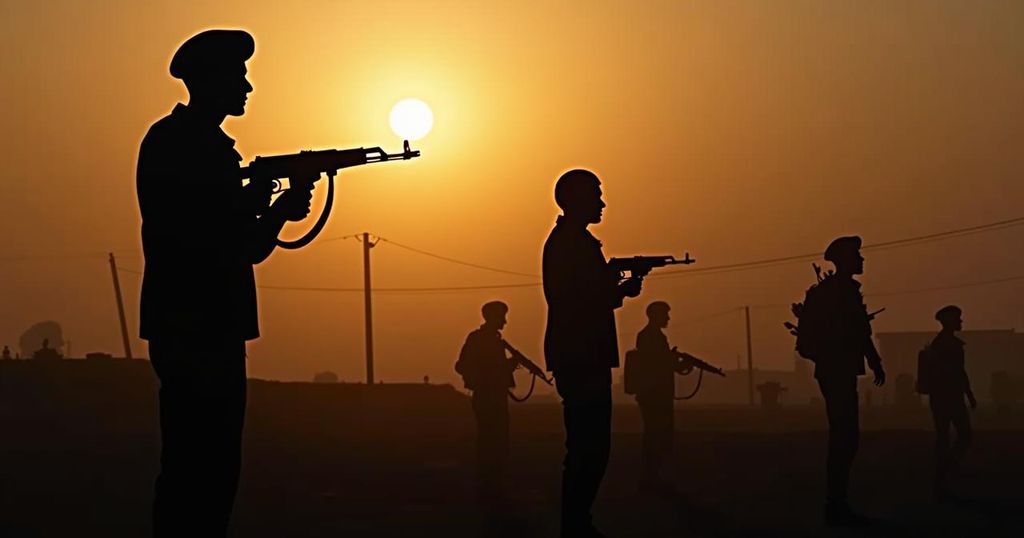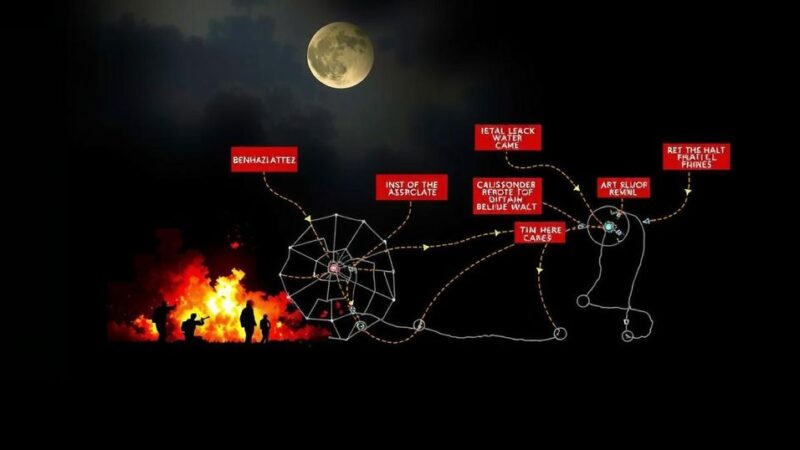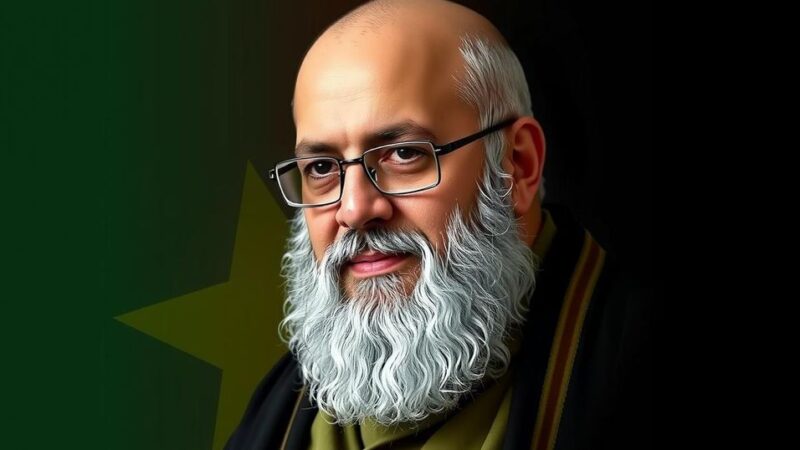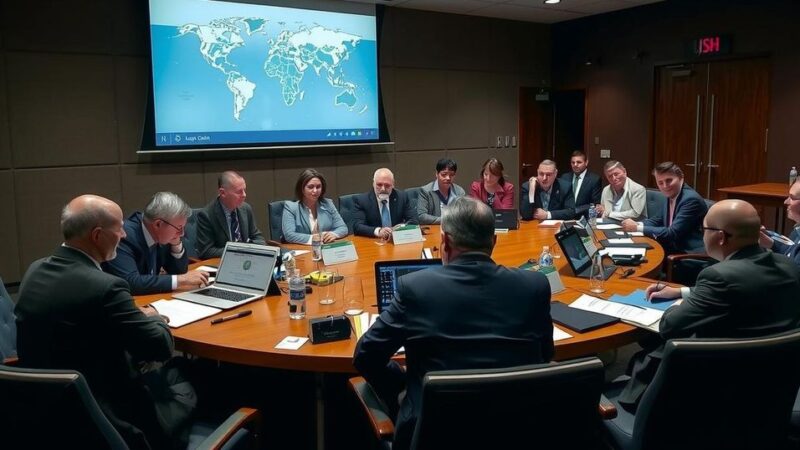The Libyan chief prosecutor has detained militia leader Mohamed Bahroun and an aide after their involvement in the murder of notorious human trafficker Abdel-Rahman Milad. Milad, previously sanctioned by the UN for his trafficking activities, was shot in Tripoli. His death has raised significant concerns regarding the linkage between Libyan authorities and trafficking networks, as well as the efficacy of EU measures aimed at curbing human trafficking. The ongoing crisis underscores the challenges facing migration pathways through Libya, where vulnerable migrants often find themselves subject to extortion in detention centers.
In a recent development in Libya, the chief prosecutor issued a detention order for militia leader Mohamed Bahroun and one of his aides, following their involvement in the killing of notorious human trafficker Abdel-Rahman Milad. Milad, notorious for his trafficking activities and previously sanctioned by the United Nations Security Council, was shot while seated in a car in Tripoli. Known as “Bija,” Milad had led a coast guard unit in Zawiya and faced accusations of deliberately sinking migrant boats. After being arrested in 2019, Milad’s name resurfaced during meetings between Italian officials and Libyan counterparts, raising questions about the interplay between Italian authorities and traffickers. Although he was arrested in 2020, Milad was eventually released, and continued his activities without restraint for years. European Union spokesperson Peter Stano expressed ongoing support for the Libyan authorities in addressing human trafficking. However, rights groups argue that EU-mandated strategies have inadvertently placed migrants in jeopardy, as they are often returned to Libya and subjected to extortion in detention facilities. Anas El Gomati, director of the Sadeq Institute, criticized the situation, asserting that funds intended for life-saving measures have instead supported trafficking networks. Recently, the Libyan coast guard intercepted a vessel carrying 64 migrants, highlighting the continuing peril of Mediterranean crossings, which remain fraught with risk due to the deteriorating conditions facing migrants.
Libya serves as a significant transit point for migrants seeking to reach Europe from Africa and the Middle East, often through perilous Mediterranean crossings. The country has faced systemic issues regarding human trafficking, exacerbated by political instability and corruption within both local and international frameworks. The EU has engaged in partnerships with Libya’s coast guard to curb the flow of migrants, a strategy criticized by rights organizations for perpetuating a cycle of abuse and exploitation. Abdel-Rahman Milad’s criminal activities attracted international scrutiny, especially his alleged links to both trafficking networks and formal state enforcement, casting a shadow over the legitimacy of certain alliances between the EU and Libyan authorities. Milad’s death raises serious questions about the effectiveness of current policies intended to protect migrants and the extent of collusion between various actors within the system.
The detention of militia leader Mohamed Bahroun highlights the complexities surrounding human trafficking in Libya. The killing of Abdel-Rahman Milad, a significant figure in this crisis, reflects ongoing violence and dysfunction within the country. As Libya grapples with its dual challenges of human trafficking and migrant safety, the response from both local authorities and international partners will be pivotal in addressing these systemic issues. Ultimately, continuous evaluations and reforms are necessary to ensure that actions taken genuinely prioritize the safety and rights of vulnerable populations.
Original Source: www.euronews.com





